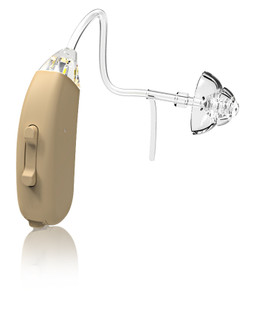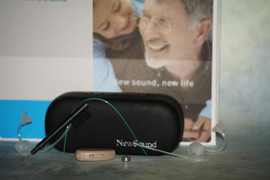Top 5 Signs You Might Need a Hearing Aid (And What to Do Next)
Posted by DR Paul on Apr 24, 2025
Hearing is one of our most vital senses, connecting us to the world around us through sound. From engaging in conversations with loved ones to enjoying the subtle melodies of nature, our auditory experiences enrich our lives in countless ways. Unfortunately, hearing loss can creep up on us gradually, often going unnoticed until it significantly impacts daily life. If you've found yourself straining to hear or asking others to repeat themselves more frequently, you might be experiencing early signs of hearing loss. In this blog post, we'll explore the top five signs that suggest you might need a hearing aid and provide practical guidance on what steps to take next.
Sign 1 - Turning Up the Volume:
One of the earliest signs of hearing loss is an increasing reliance on higher volumes for televisions, radios, and personal devices. If family members or friends start commenting about the loudness of your TV or music player volume — which seems perfectly normal to you — it's time to consider whether your hearing may be diminishing. This behavior often goes unnoticed because it becomes second nature over time. The gradual increase in volume settings could be your ears' way of compensating for their declining ability.
Sign 2 - Struggling with Conversations:
Have you noticed yourself frequently asking people to repeat themselves? Or perhaps certain conversations seem muffled or unclear, especially in noisy environments like restaurants or social gatherings. Difficulty following conversations is another telltale sign that a hearing aid might be beneficial. It's not uncommon for individuals with mild hearing loss to feel fatigued after social events due to the extra effort required to process speech amidst background noise.
Sign 3 - Missing Everyday Sounds:
Everyday sounds are part and parcel of life’s soundtrack—birds chirping outside your window, doorbells ringing, or even the hum of household appliances can go unnoticed when hearing starts declining. If these sounds have become faint or altogether absent from your daily experiences, it may indicate that you're missing out on important auditory cues due to potential hearing loss.
Sign 4 - Withdrawal from Social Situations:
Social withdrawal can sometimes stem from embarrassment or frustration caused by an inability to hear well during interactions. If you find yourself avoiding social gatherings or opting out of phone calls because they’ve become too challenging, it’s worth considering that a change in your auditory capabilities might be at play. Over time, this avoidance can lead not only to loneliness but also impact mental health negatively.
Sign 5 – Ringing Ears (Tinnitus):
Tinnitus is characterized by persistent ringing or buzzing sounds in one’s ears without an external source causing them. While tinnitus doesn’t always indicate significant hearing damage requiring aids immediately; however chronic symptoms should prompt consultation with healthcare professionals as they exist alongside other forms affecting overall ear health.
What To Do Next
If any combination—or even just one—of these signs resonates with you personally then taking proactive steps towards addressing potential issues should follow suit promptly rather than delaying further assessment/aid acquisition unnecessarily:
1) Schedule A Hearing Test: The first step involves scheduling comprehensive evaluations conducted by certified audiologists who’ll accurately assess current conditions determining the extent/nature of underlying problems;
2) Consult Professionals For Guidance: Based upon results obtained via testing sessions engage in discussions concerning available options regarding appropriate interventions aiding improvement wherever feasible including device recommendations tailored specifically according to needs/preferences expressed;
3) Explore Different Devices & Technologies Available Today Within Marketplaces: Investigate various types/models existing within today’s marketplace offering diverse features suited to individual lifestyles/budgets ensuring optimal satisfaction levels achieved upon final selection process completion;
4) Trial Periods & Adjustments: Many providers offer trial periods allowing users ample opportunity to adjust new devices comfortably while exploring necessary settings adjustments optimizing performance output efficiency simultaneously enhancing user experience substantially thus eliminating initial apprehensiveness associated with initially adopting usage patterns unfamiliarity initially presents itself initially encountered first instance;
Recognizing early signs indicating potential needs concerning acquiring suitable assistive technologies remains crucial to preventing further deterioration. Once identified, swift responses implemented effectively ensure successful outcomes, ultimately resulting in enhanced quality of life enjoyed to the fullest extent.










